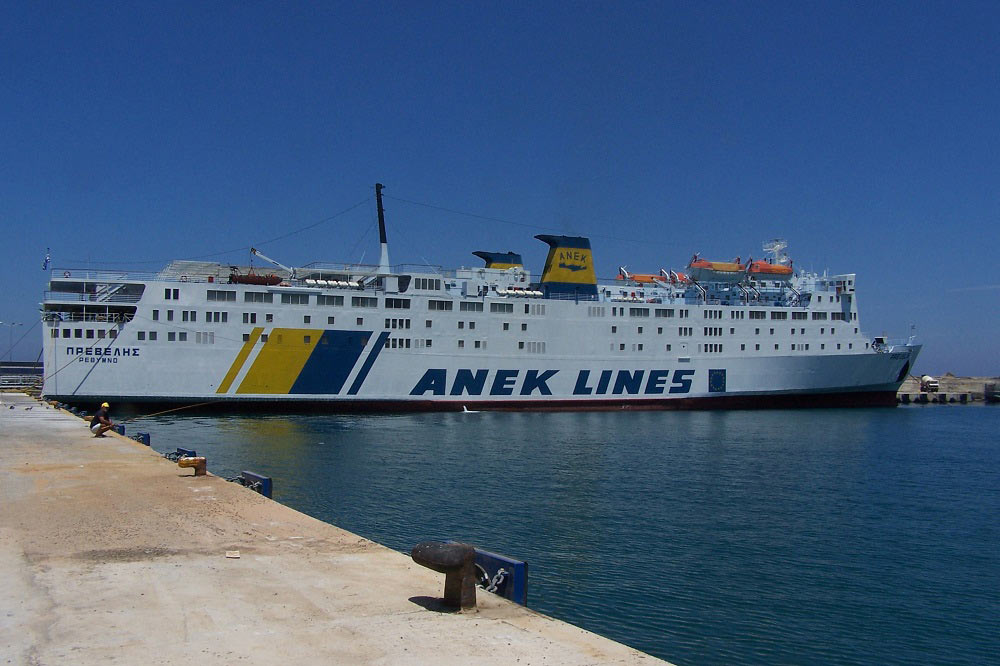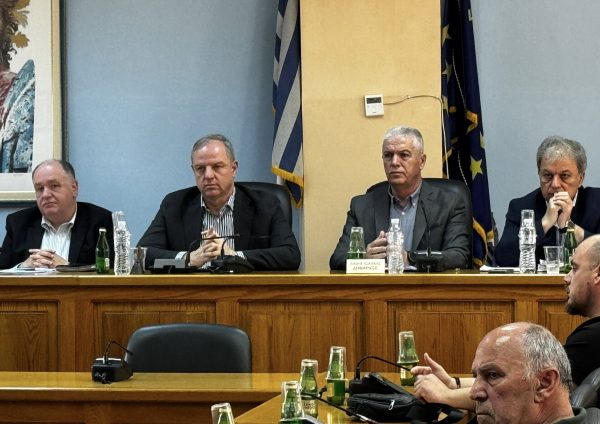
The financing of the barren coastal shipping lines has “returned” to the budget of the Ministry of Shipping, at least for this year. The delays recorded in the repayment of the coastal shipping companies from the Public Investment Program, a matter which was mentioned by ot.gr, obliged the political leadership of the Ministry to promote an amendment to the Parliament according to which the 2021 and 2022 invoices relating to public service contracts, which have been executed within the framework of the Public Investment Program of the Ministry of Shipping and Insular Policy and have been submitted by October 31, 2022, are allowed to be paid at the expense of the appropriations of the Regular Budget of the above Ministry.
Arrears to liners
It is recalled, as reported by ot.gr, that the debts of the Ministry of Shipping to the coastal shipping companies which serve “barren” lines exceed 80 million euros. Debts seem to be swelling lately as the government is called upon to cover “holes” created by the energy crisis.
The problem, according to actors in the coastal shipping industry, is due to the fact that the money intended for the compensation of the coastal shipping companies is drawn from the “bucket” of the Public Investment Program which is “drying up” due to repeated crises (pandemic, energy crisis, etc.), with the result that, as is typically said, the funds are allocated based on how “powerful” each ministry is and not the actual needs. The inclusion of the funds for the barren lines in the Public Investment Program was announced by the shipping minister Yiannis Plakiotakis on September 18, 2019, together with the expansion by 40 million euros of the annual subsidy, which now reached 130 million euros, compared to 90.7 million euros until then. The barren lines are a development project and as such are now financed, the minister had emphasized, announcing their inclusion in the Public Investment Program. In addition, the barren lines of the country are financed as a recurring action for the following years, with guaranteed resources and with the necessary flexibility for uninterrupted financing, but also the possibility to cover additional or emergency needs that may arise.
However, in the end, this “model” seems not to be working in times of crisis, when the needs multiply, as industry actors estimate, and the ministry was forced to make an about face in order to give shipping companies the money due them.
Latest News

IMF: US Tariffs Shake Global Economy, Outlook Downbeat
IMF slashes global growth forecast to 2.8% as U.S. tariffs create uncertainty and ‘negative supply shock

First Step Towards New Audiovisual Industry Hub in Drama
The project is set to contribute to the further development of Greece’s film industry and establish Drama as an audiovisual hub in the region

Airbnb Greece – Initial CoS Ruling Deems Tax Circular Unlawful
The case reached the Council of State following annulment applications filed by the Panhellenic Federation of Property Owners (POMIDA)

Mitsotakis Unveils €1 Billion Plan for Housing, Pensioners, Public investments
Greek Prime Minister Kyriakos Mitsotakis has announced a new set of economic support measures, worth 1 billion euros, aiming to provide financial relief to citizens.

Alter Ego Ventures Invests in Pioneering Gaming Company ‘Couch Heroes’
Alter Ego Ventures' participation in the share capital of Couch Heroes marks yet another investment by the Alter Ego Media Group in innovative companies with a focus on technology.

Corruption Still Plagues Greece’s Driving Tests
While traffic accidents continue to claim lives on Greek roads daily, irregularities and under-the-table dealings in the training and testing of new drivers remain disturbingly widespread

Pope Francis Died of Stroke and Heart Failure Vatican Confirms
As news of the official cause of death spread, tributes poured in from across the globe. The 1.4 billion-member Catholic Church is united in grief, remembering a pope who championed inclusion, justice, and compassion

Increase in Both Museum Visits, Revenues for 2024
As expected, the Acropolis was the top archeological site in the country, followed by Sounion, Mycenae, the ancient theater of Epidaurus, and Vergina in northern Greece

Where Greece’s Tourists Come From: A Look at 2025’s Top Visitor Markets
The United Kingdom continues to hold the top spot as the largest source of incoming tourism, with 5.6 million seats booked for Greece this summer — up 2.2% from last year. This accounts for 20% of all international air traffic to Greece

Pope Francis: A Pontiff Who Reshaped the Papacy and Sparked a Global Conversation
His first words from the balcony of St. Peter’s Basilica—“Brothers and sisters, good evening”—set the tone for a pontificate that would challenge norms, favor mercy over dogma, and bring the papacy closer to the people.












![Πλημμύρες: Σημειώθηκαν σε επίπεδα ρεκόρ στην Ευρώπη το 2024 [γράφημα]](https://www.ot.gr/wp-content/uploads/2025/04/FLOOD_HUNGRY-90x90.jpg)



![Ξενοδοχεία: Μεγάλο το ενδιαφέρον για επενδύσεις στην Ελλάδα – Η θέση της Αθήνας [γραφήματα]](https://www.ot.gr/wp-content/uploads/2025/03/Athens-hotels-90x90.jpg)
























 Αριθμός Πιστοποίησης
Αριθμός Πιστοποίησης